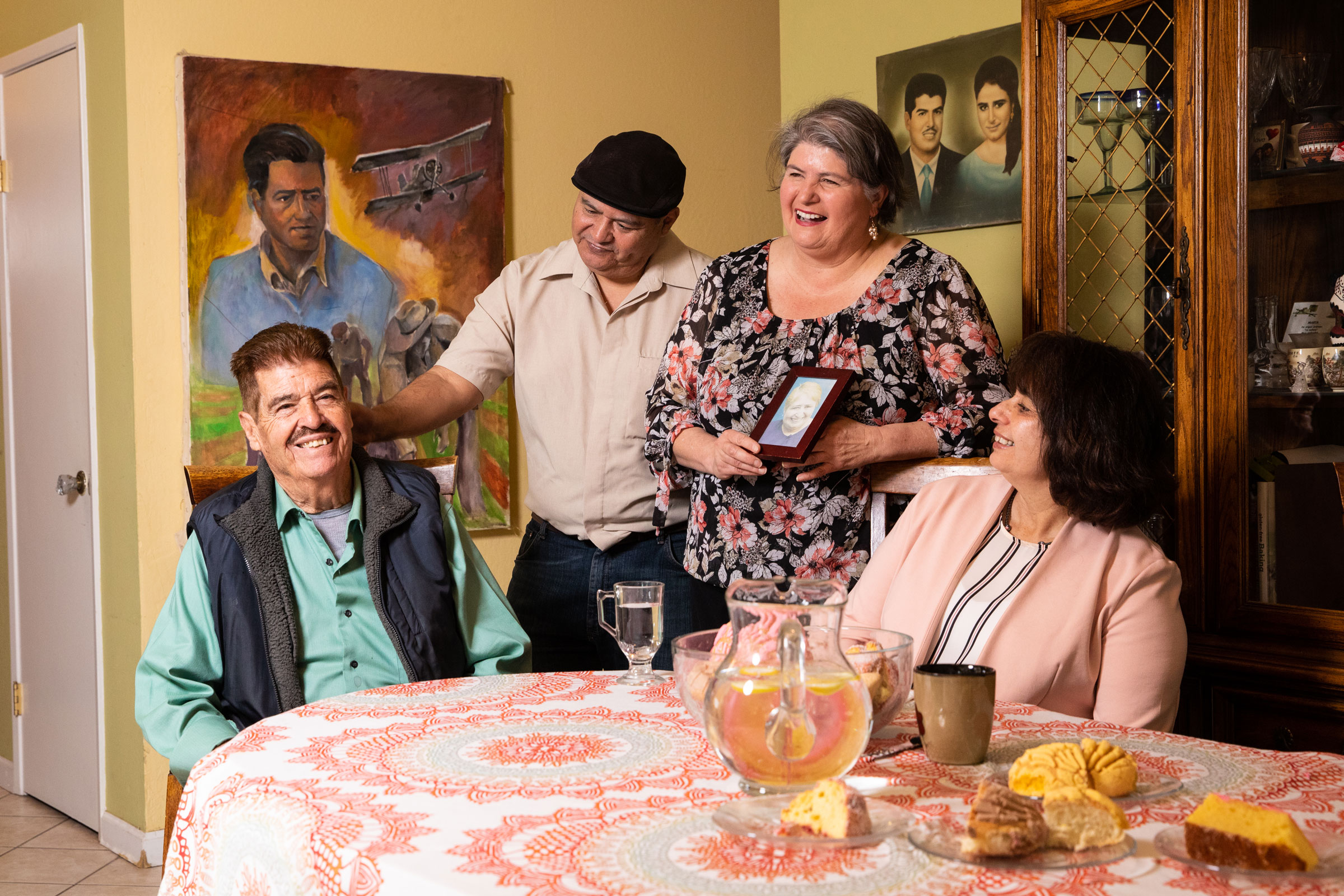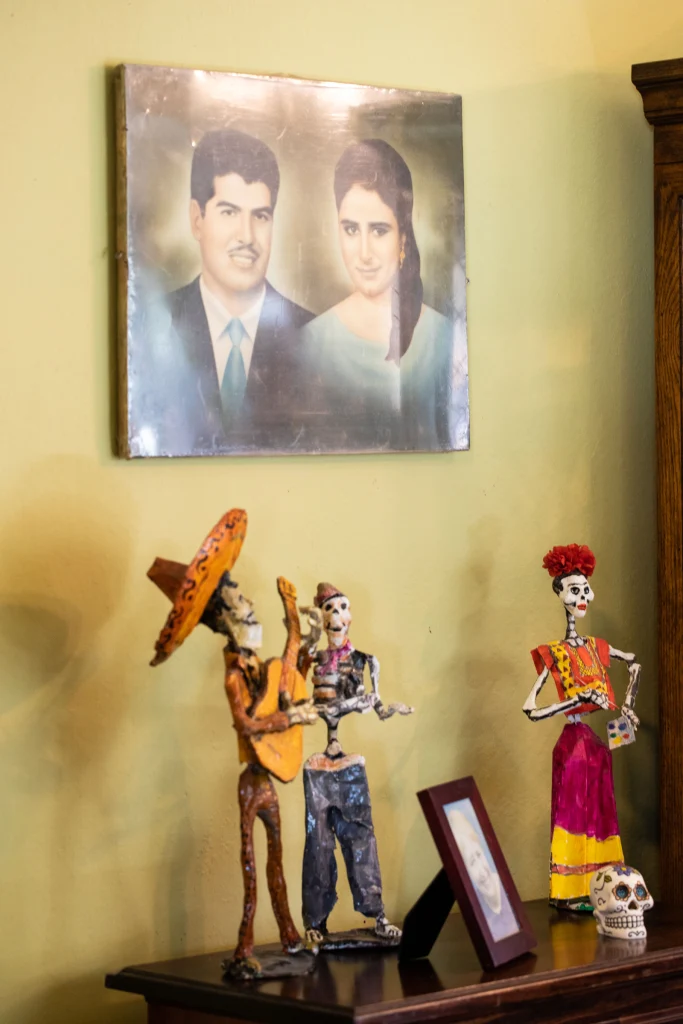Story Content
'We had shared memories as a family': All eight children of farmworkers are Hornet alums

March 30, 2020
Henry Barela was a brilliant child. And he never let his own kids forget it.
“We heard all these stories that he was the smartest guy in the class,” said Jesus Barela, the fifth of Henry’s eight children. “We wanted to be like him.”
One thing Henry didn’t have, however, was someone who encouraged him to go to college, and his kids knew how that missed opportunity frustrated him.

Over the course of nearly three decades at Sacramento State, they more than made up for it.
Ultimately, with all of Henry and wife Catalina’s children becoming Hornet alums, few families are likely to have a stronger claim than the Barelas to being Made at Sac State. The University helped transform the family of farmworkers, barely removed from returning to the United States from a decade in Mexico, into a family of scholars.
Seven of the Barela children graduated from Sac State with bachelor’s degrees. Five obtained master’s degrees and another two earned teaching credentials, all from Sac State. Two later earned doctorates elsewhere.
“We have shared memories as a family,” said Eva Barela, the oldest sibling. “We all went to Sac State, and we can relate to each other.”
Henry Barela listens to three of his children talk about their time at Sacramento State, as a portrait of him and his wife Catalina hangs in the background. (Sacramento State/Andrea Price)
Many parts of the Barela family story are familiar. Henry started as a farmworker in 1957, earning about $7 a day in San Joaquin County. The family moved constantly as Henry sought better opportunities. They returned to Mexico and, from 1970 to 1980, lived in Jalisco, a central-Mexican state that stretches to the country’s West coast. There they ran several small businesses including a toy store, a tostada factory and an animal feed supply.
When the Mexican economy stagnated in 1980, they returned to the United States, eventually settling in a migrant camp in Solano County. The oldest children worked alongside their parents in the fields.
But an important reason for returning to the U.S. was Henry’s desire for his children to have the education he missed. When a high school counselor told Eva in 1982 that she could attend Sacramento State through the newly created College Assistance Migrant Program for children of migrant workers, Henry drove her to campus to meet with a CAMP adviser. She was admitted that summer.
“Sac State became my home,” Eva said. “I was there all the time. I learned how to socialize. I became part of the life at Sac State.”
Martha Reyes, the next oldest, followed Eva to Sac State a year later. They soon were joined by brothers Luis, Alejandro and Jesus. They drove together to campus each day from Solano County, arriving at 6:30 a.m. and often staying until 6:30 p.m.
Eva was the trailblazer for her younger siblings. But the family also received support from the faculty and fellow students, especially Latinx faculty and friends and mentors they met in CAMP, bonding over shared experiences and heritage. Those relationships led one mentor to connect Luis with an internship at McClellan Air Force Base, leading to his current work as a civilian engineer for the United States Marine Corps.
At Sacramento State, the Barelas found ways to branch out, leading Eva and Martha to study abroad. Martha said her studies in Mexico City deepened her appreciation for her culture. Jesus became a campus activist as a member of the Mexican American student group MEChA, helping push University leadership to create a multicultural center and even serving as a bodyguard for Cesar Chavez when the late renowned labor leader spoke on campus in 1991.
They also knew they had a support system back home in Solano County, where their parents still worked in the fields.
“They sacrificed a lot,” said Martha, who works for Sacramento State Student Affairs. “They could have made us work, but no. Instead, they were always supportive. Mom would say, ‘You have an exam? Let me fix you something.’ ” Catalina Barela died in 2003.
Eventually, the younger children – Lorena, Oscar and Diana – followed their older siblings to become Hornets. Diana, the youngest, graduated in 2009, completing a nearly three-decade Sacramento State story for the Barela family. Over the years, graduations became family reunions and mini-alumni reunions rolled into one.
“It made a big difference for our younger siblings, to be there at every graduation,” Martha said. Each graduation reinforced the expectation that all the Barela children would attend college, to graduate. And each graduation further validated Henry Barelas’ decision to move his family back to the United States.
Now, 38 years after she enrolled at Sacramento State, Eva Barela says she and her siblings can serve as an example to other young people from migrant families, especially those who think a college degree is out of reach.
“Don’t feel that you can’t go to college,” she said. “Give college a chance and have self-confidence. If we made it, anyone can do it.”
The Barela Family
- Eva Barela ’90 (Spanish and Portuguese), MA ’93 (Spanish)
- Martha Reyes ’91, MA ’98 (Spanish)
- Luis Jimenez ’91, MS ’03 (Electrical and Electronic Engineering)
- Alejandro Barela ’92 (Liberal Studies and Credential), MSW ’14
- Jesus Barela ’95 (Art), Credential ’96, MA ’09 (Art Studio)
- Lorena Barela (attended ’93-’94)
- Oscar Jimenez-Castellanos ’99 (Liberal Studies and Credential)
- Diana Barela ’09 (Sociology)